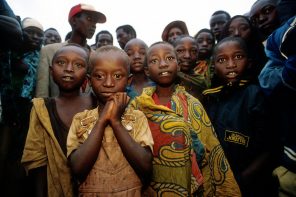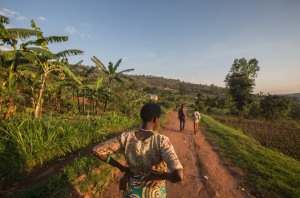Earlier this week, I went through recording after recording from Sierra Leone–interviews with forced wives, and with women who suffered every denigrating crime even without being taken in marriage; interviews with ex-rebels, one so young he said he had to be taught how to rape; hour after hour of awful stories, each living in the memories of the multiple people always involved, on some side, in a single atrocity.
I’d also been doing this during and in the wake of genocide memorial week here in Kigali, where survivors have been speaking to audiences in the hundreds about what they suffered.
And suddenly, a universal language of euphamism emerges.
They did what they needed to do, a woman in Sierra Leone told me of her rape.
They did what they needed to do, a Rwandan university student told a crowd of her classmates.
There is when it came to my village, and there is It was not my choice…
A very strange child, I spent a lot of time on the Holocaust as a kid; one of the things that always interested me was the language of that genocide. Special Treatment (gassings). Resettlement (deportations). Final Solution (mass murder). There’s a fascinating panel in the Museum of Jewish Heritage‘s permanent exhibit that catalogs some of this linguistic misdirection. I happen to find it not all that different in practice from the diplomatic and political speech used to discuss more recent crimes (rants here and here).
But the emerging sameness of what’s unsaid by victims makes me wonder whether, no matter what side of the violence you’re on, the things we call “crimes against humanity” are simply too much for literal speech–whether indirect speech–especially metaphor, that most developed of evolutionary powers–is really just our most instinctual coping mechanism.



